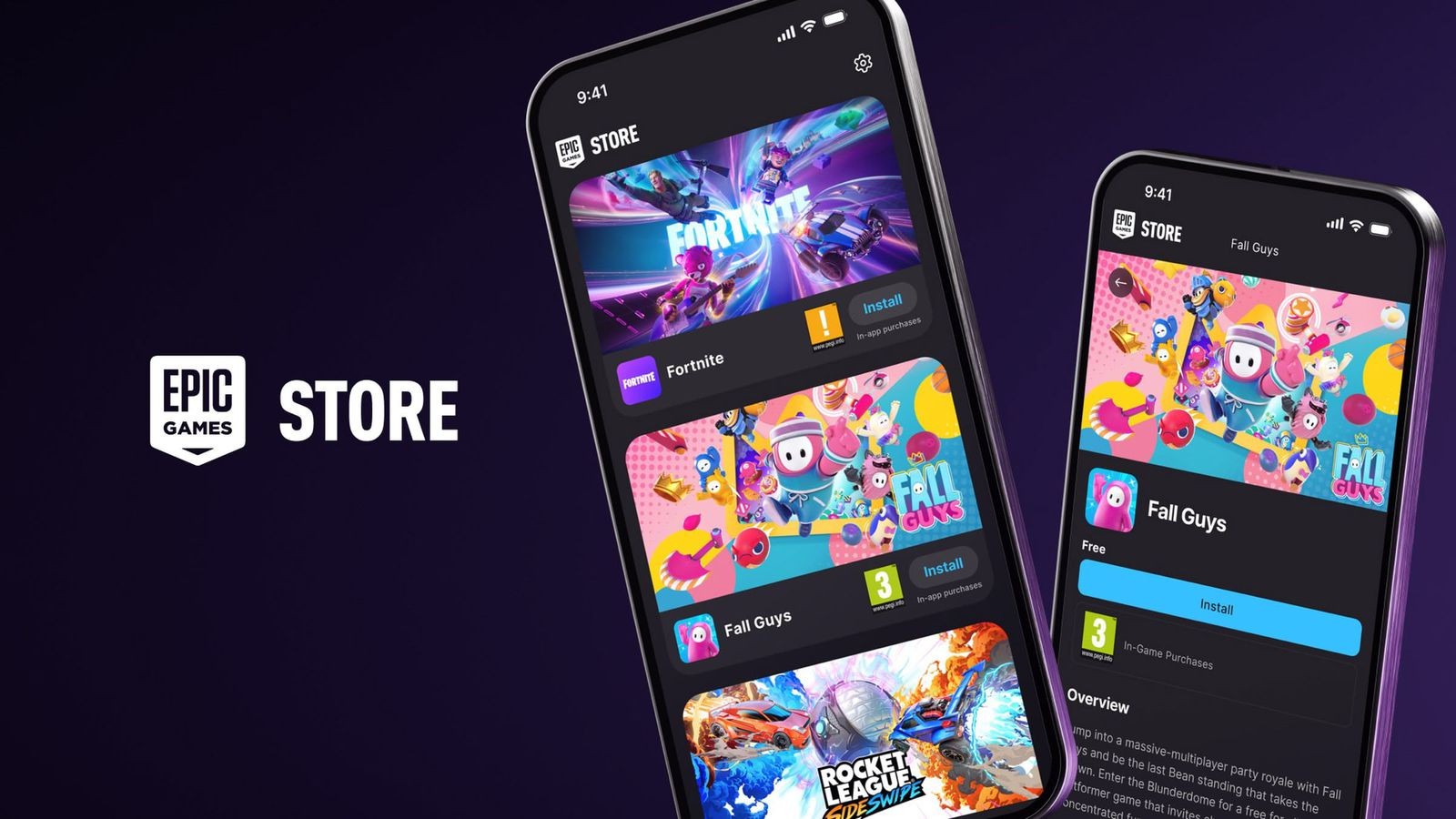
After a four-year hiatus, Fortnite is making its triumphant return to iPhones, albeit exclusively for users in the European Union. This comeback is part of the broader launch of the Epic Games Store for iPhone, which went live today in the EU.
The reintroduction of Fortnite to iOS devices comes as a direct result of the EU's Digital Markets Act, which has compelled Apple to allow third-party app marketplaces on its platform. EU users can now download the Epic Games Store by visiting Epic's website on their iPhones.
Fortnite's availability is undoubtedly the headline feature of this launch. The popular battle royale game was removed from the App Store in 2020 following a dispute between Epic and Apple over in-app purchase systems. Prior to its removal, Fortnite on iOS generated over $700 million in revenue over two years, with Apple collecting more than $100 million from its 30 percent cut of in-app purchases.
Currently, the game catalog in the iOS Epic Games Store is limited, featuring only a handful of Epic's own titles such as Fortnite and Rocket League Sideswipe. However, the company has expressed plans to expand the library over time and is in discussions with third-party mobile developers.
Epic Games will need to navigate Apple's new fee structure, which includes a "Core Technology Fee" of €0.50 per install per year after the first million installs. This fee applies to both the Epic Games Store itself and the games within it, effectively doubling the charge for popular titles like Fortnite.
The Epic Games Store is only available on iPhones running iOS 17.4 or later, while iPad users will have to wait until the release of iPadOS 18 to access the store on their devices. Epic has set an ambitious goal of reaching 100 million mobile downloads of its store by the end of the year, combining game installs across both iOS and Android platforms.
While the current launch is limited to the EU, Epic Games CEO Tim Sweeney has expressed hope for expansion into other markets. Recent legislation in the UK and Japan could potentially pave the way for third-party stores on devices controlled by Apple or Google operating systems in those regions.
For now, US consumers and those outside the EU will have to wait, as there are no immediate plans to bring Fortnite and the mobile Epic Games Store to these markets. Sweeney acknowledged the challenges faced in the US, stating, "It's been a massive failure of the United States regulatory and political system that there's not a crisp, clean action to stop the monopolization occurring in the United States and in the whole world by a U.S. company."
As Epic Games continues its efforts to establish itself in the mobile marketplace, the company remains optimistic about the potential for growth and the opportunity to provide users with alternative options for accessing games and apps on their mobile devices.